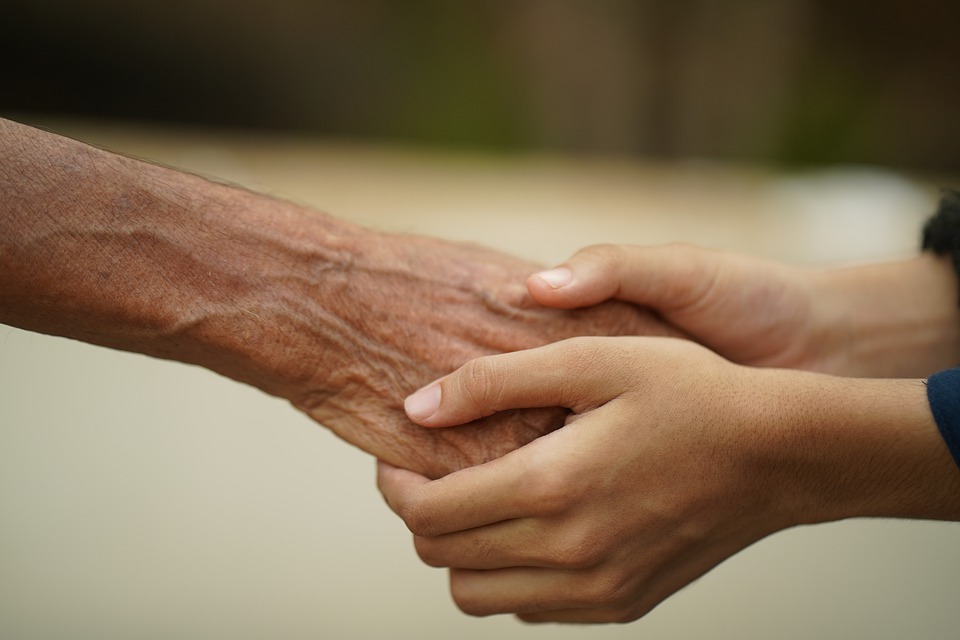Rebecca Sudworth, Deputy Civil Service Carers’ Champion, highlights the key issues young carers face.
Today is Young Carers Action Day. This is a nationwide event organised by the Carers Trust aimed at raising awareness of young carers across the country.
Here in the Civil Service, we have many carers aged between 16 and 29. These are people who are looking after a friend or family member who, due to illness or disability, cannot cope without their support. Sometimes they have been caring for someone through part or all of their childhood.
 Young Carers Network
Young Carers Network
I am delighted that a Young Carers Network has been set up in the Civil Service to bring them together and offer them support. The network is also working to raise awareness of the issues our young carers face.
Issues young adult carers face
Identity is a key issue for young carers. They may not recognise that they’re a carer and they may find it difficult to fit in with assumptions that younger members of the workplace are “care-free”.
Young adult carers face many of the challenges other carers experience, but
it can feel a little different. They may know few - if any - other people in their age group in a similar situation. They’re often at the start of their careers and can struggle when colleagues and managers don’t understand the level of responsibility they carry outside work.
Wealth of experience
Young carers can shoulder heavy responsibilities as part of their caring role and, at times, balancing work and caring can feel like walking on a tightrope. It can be stressful and it’s important we look after the wellbeing of all our young carers. We should also value the skills and experience which caring gives them. They bring a wealth of experience to the Civil Service and we need to take a pragmatic and empathetic approach to making the best use of their skills, including supporting their development and ongoing career progression.
Sarah is one of our young carers who tells her story below.
Being a carer was a privilege - Sarah Thomas, HMT

I’d never really thought about what being a carer meant or the impact it could have on people's lives until the moment I stood with one hand on the TV remote, trying to work out whether my dad wanted the channel changed or whether he wanted lunch. In the same moment, I was replying to a Teams message on my work phone about a pressing deadline.
Terminally ill
Aged 25, I'd become a carer to my dad, who was diagnosed as terminally ill and needed full-time care. For me it felt obvious that when we received his diagnosis, I had to be there with him. My brothers felt the same. The only thing I can be grateful to lockdown for is providing me with the opportunity to work from home and be there for my dad when he needed me most. However, after making the move home to care for him, I found myself trying to juggle my job with caring responsibilities, as well as trying to maintain my own wellbeing.
All encompassing
I was lucky (though not sure that’s the right term in this context) to also have my brothers sharing responsibilities, as well as professional carers visiting throughout the day. Many carers don’t have the same kind of support, and I can only try to imagine how much more pressure this puts on them. It was an all-encompassing job, from the second I woke up in the morning to the second I went to bed. My priority was providing care and then everything else became secondary.
I learnt a lot about myself over those months. Sadly, I wasn't a carer for a long time, but it gave me an unbelievable amount of respect for carers. It’s a task like no other, which affects you physically and emotionally in ways you can never imagine.
Show empathy
If there are small things that we can do to support carers, whether as a manager, colleague or friend, I would encourage you to be understanding, show empathy and just check in to ask how they’re doing. These things helped me through my experience which was incredibly challenging, but also a complete privilege.◼︎

Support for carers
The Civil Service provides lots of support for our carers. If you’re a young carer, I encourage you to fill out a carer’s passport in discussion with your manager. I have one myself and I know how helpful they can be in terms of enabling you to give of your best in both your work and caring roles.
Employee Assistance Programme
Your department will also have an Employee Assistance Programme and the option for special leave to help you when you need them.
Please also join the Civil Service Young Carers Network. They are there to help you. For more information, please email COCarers@cabinetoffice.gov.uk.

